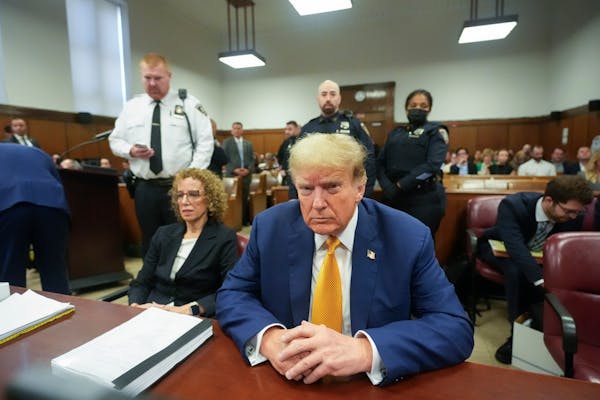President Obama is, by a wide margin, the stingiest president in modern times in his use of the pardon power. He seems unwilling or unable to use this simple constitutional tool, even as both conservative and progressive commentators are criticizing the federal government's overincarceration of nonviolent offenders. A simple way to alleviate that problem would be to commute (shorten) the most egregious of these sentences using the pardon power.
Some are now calling on Christians to take this up as a new social issue. Writing in the National Catholic Reporter, Mary Ann McGivern recently called for ministers to address mercy and clemency in their sermons on the Sunday after Thanksgiving. It is an excellent and timely idea.
One remarkable (and fairly unique) aspect of the pardon power is that it encompasses a virtue that is both religious and Constitutional — mercy. Though the value of mercy is emphasized in many faiths, it plays a special role within Christianity. Jesus, after all, both granted a pardon to the adulteress about to be stoned in John 8, and was explicitly denied one by Pilate as the mob cried "crucify him!" (Pilate freed an insurrectionist, Barabbas, instead).
To some, it may seem that the kind of sermons McGivern urges would violate the separation of church and state, but the Constitution has never barred people of faith from considering their beliefs when they ponder political issues. It is no different from a minister or rabbi or imam urging concerted action to address poverty.
For me, this issue is deeply personal. When I arrived at the University of St. Thomas's Law School in 2010, we created the nation's first federal commutations clinic. My students analyze cases and choose their clients, then work with prisoners to craft compelling clemency petitions that are submitted to the president. It is deeply fulfilling work and trains our students in the key skill of developing the personal narrative of a client.
Because of my work with this clinic, I receive a steady stream of letters from prisoners who would like my students to help them. Those thick, brown envelopes are often covered with 46-cent stamps, purchased with prison wages that can be as low as 23 cents an hour. It is heart-wrenching simply to pick up my mail.
Recently, I tore open one such envelope from a prisoner in Texas who was serving a life sentence. This inmate had sent me two things: the transcript of his sentencing hearing and the presentence investigation report, which is a well-researched description of the case prepared by a probation officer before sentencing. I pulled out the transcript first and opened it to a random page.
In the sentencing transcript, the defendant was publicly admitting his part in a large crack cocaine conspiracy. He was an impoverished addict whose role was to take on menial tasks and to steer customers to those who were selling crack. He described a remarkable poverty for someone who was about to receive a life sentence as a drug dealer: "I hang at a store begging for nickels and quarters and dimes. I stayed on the front porch of my mama's house … didn't even have one change of clothes. I had to wash every day, judge." The presentence investigation report confirmed both the low level of his involvement and his abject poverty.
As a society, we will spend hundred of thousands of dollars to imprison, for his natural life, this addict who lived on his mama's porch. That is simply wrong.
We are going to work on that case. Doing so is not only within the task of our clinic, it is within the broader social mission of St. Thomas as a Catholic institution.
Two weeks ago, I gave a talk at President Obama's alma mater, Harvard Law School. In urging Harvard to be the fourth school in the country to begin its own clinic on federal commutations (we started a trend), I held up that brown envelope covered with hard-earned stamps, a totem of what is wrong. There was utter silence, a tense stillness. What those students know, as do we all, is that one life, even the life of the least among us, is more important than any professor's theory. The law professor in the White House, a Christian raised on the value of mercy, should act on that bare truth.
Mark Osler is a professor of law at the University of St. Thomas.
Consumer angst is growing, and famous brand are hurting
The trouble with Nicollet Mall: It's boring now

Readers Write: Pro-Palestinian protests, health care coverage, teaching history


